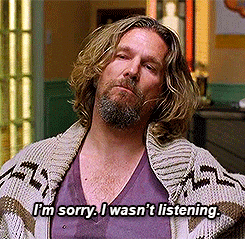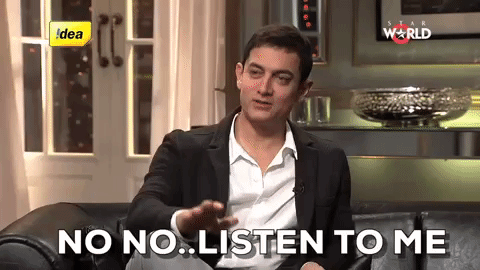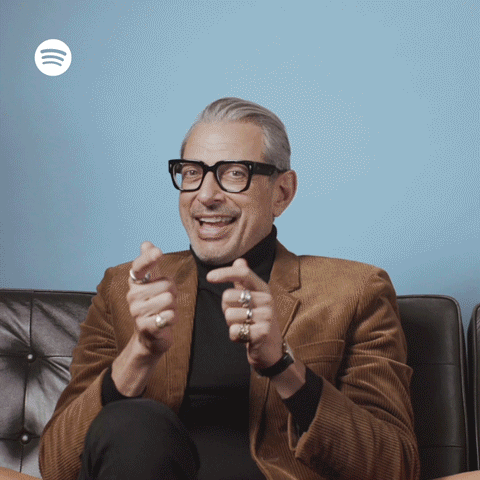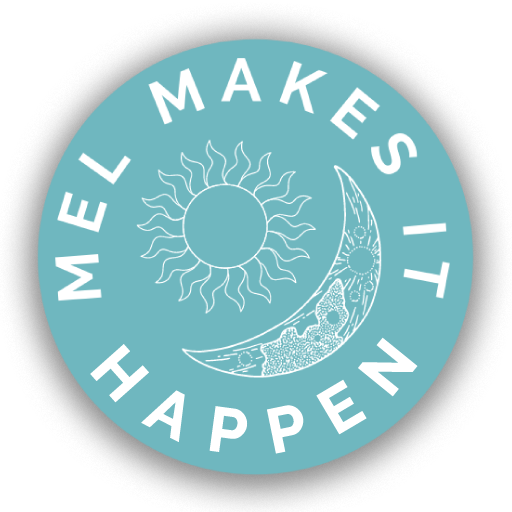Listening AKA the ticket to make anyone who speaks with you instantly like you!
Have you ever been in a conversation with someone and, a few seconds in, realized they weren’t listening to you? Maybe it was the way their eyes kept darting to the doorway or the way they glanced at their phone every few seconds. You may even ask if you are boring them. They quickly dismiss such absurdity with a light wave of their hand and vigorously offer their assurance that they are listening.
There is no such thing as listening in a conversation if one cannot arouse a natural curiosity in what the other part has to say. The words someone else speaks are just words heard by you. Hearing is not the same as listening because the words stay at surface level. To listen is to internalize what someone says and understand it so that the words have value and substantial depth.
Why is it so hard to listen?
In our society with freedom of speech, a lot of people think that means it is okay to say whatever is on their mind. People love to talk; we do so much of this that virtual platforms are even dedicated to opinions. (This blog, admittedly!) If we aren’t talking aloud, whether to another person or to ourselves, we are think-talking which is just as invasive. I’ll get to why in a moment but consider this question: are you doing more talking or listening?
Talking doesn’t necessarily mean talking in the traditional sense, although that is a big one! In contrast to listening, talking is very self-centric. It can take the form of any of the following:
- Thinking about something that happened earlier or making mental plans for what to do later
- Watching a video or playing an audible media to its conclusion and realizing you didn’t actually pay attention to anything you saw/heard (thus, having to rewind or replay it)
- Distracted behaviors such as tapping your fingers, shaking your leg, or other forms of fidgeting
- Preparing what you can say when you see someone else
- Planning what you can say to someone else while the other person is still talking
Sometimes it feels like we know it all. Yeah, even I am at fault for taking on that mentality at times. Rather than give excuses as to why we seem momentarily distracted, let’s take responsibility in the moment for what is going on in our head.

Our brains are systematic processors that quickly want to decipher a moment and categorize it. They want to see, read, smell, hear, or feel something and lump it into a category that already exists in our brains.
So, when you’re out to lunch with your friend who proceeds to tell you about an argument from the night before with her spouse, your brain says, “Oh, this sounds familiar. Let’s add it to the pile of other examples of marital arguments”. It’s not an intentional act that we’re doing and that’s what makes not listening so insidious.
We have to actively engage in presence so that we don’t automatically write off what someone is saying and dump it into a category. If we are present, then we get to be the filter and actively engage in absorbing the words someone is saying. That, my friends, is listening.
If you aren’t listening, you aren’t learning.
Most of us have a set of eyes that we use to see the world. If you shut your eyes, you’re immediately shutting off the intake of visual stimuli. With our ears, however, we don’t have an ear-lid that shuts off the intake of sound. It’s up to us to decide to hear something and listen or hear something and passively let it pass through our ears. What does this mean? Well, we basically are required to partake in some next-level processing to listen!
As I mentioned earlier, our brains want to be efficient. With so many people, tasks, and stimuli to keep track of, it is easier for our brains to hear the words someone says and classify that as something familiar rather than try to understand it. Consequently, because we don’t attempt to understand an issue, we often make use of our “familiarity” and pass judgment.

Judgment helps us make quick decisions. We utilize the pre-determined markers that we have created to save us from having to think more than we need to. It helps us sort through laundry and create wash piles when we can look at garments and swiftly separate them into colors, darks, and lights. We’ll toss out the wilted cabbage from our fridge because it has developed fuzzy spots on it. No formulas or technical steps needed—time is energy, after all.
But what about tuning into the nuances of ourselves and the variability in those around us? We’ll take a lunch break when the clock hits 12 because the time tells us we’re hungry instead of our stomachs. If a favorite brand of ours comes out with a new product, we may be inclined to buy it without even researching the product because we already have a trusted idea of what we can expect from that brand.
Again, pre-determined markers are efficient though they fail to allow us to see a situation as novel and to view the world with a critical eye. Instead, we strip away all that is unique, as we only focus on what we already know. Obviously, it helps to have background information on any subject to better understand something new related to that subject.
Let’s say, for example, you’re pretty familiar with computers; so now it is easy to install a new program or search for what you need on the internet. But do you remember what it was like to first learn how to use one? You wanted to learn. It intrigued you to see what more you could do with this piece of technology so you spent hours and hours trying to figure it out. Maybe not all at once but cumulatively you’ve probably spent countless hours learning little things about your computer.
What if we brought some of that curiosity into our relationships with people and into our conversations? What if we opened up to the thought that people might have unique perspectives and ideas? Can you imagine how much we could learn from one another if we weren’t so quick to judge instead of listen?
It hurts to not feel listened to.
Sometimes we can get caught up in wanting to be the first one to say something or wanting to share our personal news that we aren’t mindful of extending conversational courtesy to those we speak with. We say we value a good listener but do we actively practice being one ourselves?

I think we often forget that not applying attention to someone who speaks is just as rude as if you made a hurtful comment towards them. Where did the care and compassion elements that make up the basis of a conversation go? When I was growing up, I can’t tell you how many times the idea, “treat others the way you want to be treated”, was instilled in me.
When we lash out, cut someone off while they are speaking, or simply do not listen, we are basically putting forth a closed off energy. We are impeding our potential to learn and squashing the spirit in others who bravely choose to share.
Unfortunately, when you choose to open up to someone and they: don’t listen, criticize what you say, or completely shut you down, that has detrimental effects on your ego and self-esteem.
Yeah, we can huff and puff about how our generation is so sensitive but isn’t our generation also the one that is supposed to be more tolerable? At least here in the U.S., are we not the generation that has boasted the acceptance of different lifestyles? We don’t need to embrace someone else’s opinions, behaviors, or lifestyle choices as our own but I do think we need to embrace RESPECT for others’ opinions, behaviors, and life choices.
It continues to surprise me that we are all individuals with individual thoughts. And that is only something I have realized through listening. Perhaps we can concede that we are all different people and we all have our own unique perspective of this world we live in. If that can be agreed upon, why are people so quick to impose their ideas on someone else? What’s right for you isn’t necessarily right for your brother, friend, coworker, sister-in-law, husband, or whoever.
Therefore, we need let the practice of speaking with kindness and respect guide us.
How to overcome the listening hurdle.
We’ve all been on the receiving and delivering side of a judgmental conversation. So, remember to give the other person the same decency that you would like shown to you when you speak.
As for those who hurt you by wearing “hearing” but not “listening” ears, there is hope for them, too. I do feel it is important that you first be the example of that which you want to receive. Be the listener you want to have for others. That may be enough to naturally encourage the other person to extend the courtesy to you.
As a second step, you could definitely point out to the other party that you don’t feel like they are interested in listening to you. Again, many times people don’t realize how stuck in their heads they may be and how that is coming across in their demeanor. If the person is close to you, it could be worthwhile to let them know how their actions make you feel.

I know how incredibly uncomfortable that sounds. Heck, you were already feeling squashed from not being listened to and now I’m telling you to speak out about what you want!? Trust me here. I’ve had a few of these conversations with good friends and it has only benefited our friendships.
I’m notorious for being a good listener; yet I used to struggle to get even 30 seconds of microphone time when speaking to some of my friends. When I told them of the problem and how I did not feel listened to, they were surprised and a little hurt to hear it. Though, they were even more appreciative that I brought it up because they valued my friendship. From then on, these friends of mine actually made a noticeable change. They made an effort to have an equal conversation with me—taking an interest in me instead of just talking to me.
Perhaps I wouldn’t say these things to someone who I’m just having a one-time interaction with but use your judgment based on the situation. It is also worth noting the possibility that someone might not be receptive to what you say. If they play the blame game, victimize themselves, or put you down even more, then consider what importance this person plays in your life. We can’t always choose who surrounds us but we can choose who we open up to and who we share our energy with.
I’ve practiced these principles myself and hope they can be helpful for anyone else wishing to cultivate more fulfilling relationships through better listening.

Thank you so much for reading and for being here. If you have any experiences or tips related to listening then I’d love to hear them!
Xoxo,
Melanie

